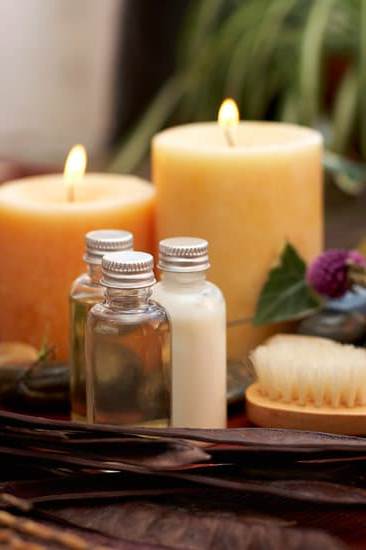What do statistics say about aromatherapy and stress relief? Aromatherapy, a holistic approach to wellness that harnesses the therapeutic properties of essential oils, has been gaining popularity in recent years as a natural method for managing stress. Research and studies have shown that certain essential oils can help reduce feelings of anxiety and promote relaxation, making aromatherapy a promising option for those seeking relief from everyday stressors.
The history of aromatherapy dates back centuries, with roots in ancient civilizations that valued plant extracts for their healing properties. Over time, this practice has evolved into a widely recognized form of complementary medicine used to address various health concerns, including stress management. The science behind aromatherapy continues to be explored through rigorous research and clinical trials, shedding light on how different essential oils can positively impact our mental and emotional well-being.
As we delve into the world of aromatherapy and its potential benefits in stress relief, it is important to understand the common essential oils used for this purpose. From lavender and peppermint to chamomile and bergamot, there is a wide range of options available to suit individual preferences and needs.
By incorporating these essential oils into our daily routines through methods like diffusers, inhalation, or topical application, we can tap into the power of aromatherapy to promote relaxation and reduce stress levels.
History of Aromatherapy
Aromatherapy is an ancient practice that dates back thousands of years, with its roots deeply embedded in various cultures around the world. The use of aromatic plants for healing purposes can be traced back to civilizations like ancient Egypt, China, and India. In these cultures, essential oils were believed to possess powerful properties that could promote physical, emotional, and spiritual well-being.
Throughout history, aromatherapy has evolved from a mystical art to a scientifically-backed therapeutic practice. The term “aromatherapy” was coined by French chemist René-Maurice Gattefossé in the early 20th century after he discovered the healing properties of lavender oil when treating a burn on his hand. This pivotal moment led to further research and exploration into the benefits of essential oils for health and wellness.
Over time, aromatherapy gained popularity in Western society as people began recognizing its potential for stress relief and relaxation. Today, aromatherapy is widely used in spa settings, massage therapy sessions, and even in everyday households as a natural way to manage stress and improve overall well-being. With advancements in scientific research supporting its effectiveness, aromatherapy has firmly established itself as a holistic approach to promoting mental and emotional health.
- Ancient Origins of Aromatherapy
- Coining of the Term “Aromatherapy”
- Evolution of Aromatherapy in Western Society
The Science Behind Aromatherapy
Aromatherapy has been widely recognized for its potential to reduce stress and promote relaxation, but what do statistics say about aromatherapy and stress relief? Let’s delve into the science behind aromatherapy to understand how it works and why it is effective in combating stress.
How Does Aromatherapy Help Reduce Stress?
Research has shown that inhaling the aroma of essential oils can have a direct impact on the brain, particularly the limbic system, which is responsible for emotions, behavior, and memory. When essential oils are inhaled, they stimulate the olfactory system, sending signals to the brain that can trigger a relaxation response. Some essential oils have been found to have sedative effects, promoting calmness and reducing feelings of anxiety and stress.
Evidence From Studies
Several studies have been conducted to investigate the effects of aromatherapy on stress levels. In a study published in Complementary Therapies in Medicine, researchers found that participants who received lavender aromatherapy experienced a significant reduction in perceived stress levels compared to those in the control group. Another study published in Evidence-Based Complementary and Alternative Medicine demonstrated that rosemary oil inhalation could lower cortisol levels, a hormone associated with stress.
The Role of Essential Oils in Stress Reduction
Essential oils such as lavender, chamomile, bergamot, and ylang-ylang are often used in aromatherapy for their calming properties. These oils have been shown to help alleviate symptoms of stress and anxiety when used consistently.
Whether through inhalation using a diffuser or topical application through massage or baths, incorporating these essential oils into your daily routine may help you manage stress more effectively. The science behind aromatherapy provides compelling evidence of its benefits in reducing stress and promoting overall well-being.
Common Essential Oils for Stress Relief
When it comes to using aromatherapy for stress relief, essential oils play a crucial role in creating a calming and soothing environment. Different essential oils have various properties that can help reduce stress levels and promote relaxation. Lavender is one of the most popular essential oils used for stress relief due to its calming and sedative effects. Inhaling lavender oil or applying it to the skin can help alleviate anxiety and improve sleep quality.
Another common essential oil for stress relief is chamomile, which has been traditionally used for its tranquilizing properties. Chamomile oil can help reduce feelings of irritability and promote relaxation. Bergamot essential oil is also commonly used in aromatherapy to uplift moods and relieve stress. Its citrusy aroma is known to have mood-boosting effects, making it a great choice for combating stress and anxiety.
In addition to lavender, chamomile, and bergamot, other essential oils such as rose, ylang-ylang, and frankincense are also popular choices for stress relief in aromatherapy. Each of these essential oils offers unique benefits that can help create a sense of calmness and well-being. By incorporating these essential oils into your daily routine through diffusers, inhalation, or topical application, you can effectively manage stress levels and improve your overall mental health.
What do statistics say about aromatherapy and stress relief? Let’s delve into some research findings to explore the impact of essential oils on reducing stress levels.
Aromatherapy Techniques
When it comes to using aromatherapy for stress relief, there are various techniques that can be employed to maximize the benefits of essential oils. Here are some common methods:
1. Diffusers: One popular way to enjoy the benefits of aromatherapy is through diffusers. These devices disperse essential oils into the air, allowing you to breathe in the therapeutic scents. Whether you opt for a nebulizing diffuser that releases a concentrated mist or an ultrasonic diffuser that uses water to disperse the oils, both can help create a calming atmosphere.
2. Inhalation: Another method of using aromatherapy for stress relief is through direct inhalation. You can simply add a few drops of your preferred essential oil to a tissue or cotton ball and inhale deeply. Or you can add them to a bowl of hot water and breathe in the steam. The act of inhaling these soothing scents can have an immediate effect on reducing stress levels.
3. Topical Application: Applying essential oils topically is also a popular way to experience their stress-relieving properties. By diluting essential oils with a carrier oil such as coconut or jojoba oil, you can safely apply them to pulse points like wrists, temples, or neck for quick absorption by the skin. This direct method allows the oils to enter your bloodstream and work their magic on alleviating stress.
Using these different aromatherapy techniques can provide individuals with diverse options for incorporating essential oils into their daily routines for stress management purposes. Experimenting with each method can help determine which one works best for personal preferences and effectiveness in promoting relaxation and reducing stress levels.
What do statistics say about aromatherapy and stress relief? Research suggests that aromatherapy has been shown to significantly reduce stress levels in individuals who incorporate it into their wellness routines regularly, confirming its efficacy in promoting relaxation and overall well-being.
Case Studies
Aromatherapy has been utilized for centuries as a natural remedy to alleviate stress and promote relaxation. Through the use of essential oils extracted from plants, aromatherapy aims to enhance both physical and psychological well-being. Various studies have shown the positive impact of aromatherapy on stress relief, demonstrating its effectiveness in reducing anxiety levels and promoting a sense of calmness. Research has indicated that certain essential oils, such as lavender, chamomile, and rosemary, can help individuals manage stress more effectively.
One study conducted by the National Institutes of Health found that inhaling lavender essential oil helped reduce participants’ heart rate and blood pressure, leading to a more relaxed state. Another research published in the Journal of Alternative and Complementary Medicine revealed that using bergamot essential oil in aromatherapy sessions significantly decreased cortisol levels in individuals experiencing chronic stress. These findings highlight the potential benefits of incorporating aromatherapy into daily routines to combat stress and improve overall well-being.
In addition to scientific evidence supporting the efficacy of aromatherapy in stress relief, many individuals have reported firsthand experiences of its positive effects on their mental health. Personal anecdotes showcase how aroma therapy has helped people cope with everyday stresses, sleep better, and maintain a more balanced emotional state. By sharing these real-life examples, we can further understand the impact of aromatherapy on stress management and encourage others to explore this natural approach to relaxation.
| Study | Findings |
|---|---|
| National Institutes of Health Study | Inhaling lavender essential oil reduced heart rate and blood pressure |
| Journal of Alternative and Complementary Medicine Research | Bergamot essential oil decreased cortisol levels in individuals with chronic stress |
Statistics on Aromatherapy and Stress Relief
A growing body of research has been dedicated to understanding the impact of aromatherapy on stress relief. According to a study published in the Journal of Alternative and Complementary Medicine, it was found that aromatherapy using essential oils like lavender, rosemary, and chamomile can significantly reduce stress levels in individuals. The study involved participants who reported lower levels of anxiety and improved mood after undergoing aromatherapy sessions.
In another survey conducted by the National Center for Complementary and Integrative Health, it was revealed that over 40% of participants reported a decrease in stress levels after incorporating aromatherapy into their daily routines. This data highlights the positive correlation between aromatherapy and stress relief, suggesting that it can be an effective complementary therapy for managing stress-related symptoms.
Moreover, statistics show that individuals who regularly practice aromatherapy as part of their self-care routine are more likely to experience lower levels of perceived stress compared to those who do not. This data underscores the potential benefits of aromatherapy in promoting relaxation, reducing tension, and improving overall well-being. Through further research and analysis, the role of aromatherapy in enhancing stress management strategies continues to be reaffirmed.
| Statistics | Findings |
|---|---|
| Study in Journal of Alternative and Complementary Medicine | Aromatherapy with essential oils can reduce stress levels |
| National Center for Complementary and Integrative Health Survey | Over 40% of participants reported decreased stress with aromatherapy |
| Regular Aromatherapy Practice | Linked to lower perceived stress levels and improved well-being |
Conclusion
In conclusion, the statistics on aromatherapy and stress relief are quite compelling. Various studies and surveys have consistently shown that incorporating aromatherapy into one’s stress management routine can lead to significant reductions in stress levels. Whether it is through the use of diffusers, inhalation, or topical application of essential oils, the benefits of aromatherapy for stress relief are well-documented and supported by data.
Moreover, the history of aromatherapy demonstrates its longevity and ongoing popularity as a holistic approach to wellness. From ancient civilizations to modern-day practices, aromatherapy has stood the test of time as a natural remedy for not only reducing stress but also promoting overall well-being. The science behind aromatherapy further solidifies its effectiveness, with research highlighting its ability to calm the mind, relax the body, and improve mood.
As illustrated by real-life case studies, individuals from all walks of life have experienced firsthand the positive impact of aromatherapy on their stress levels. By harnessing the power of essential oils such as lavender, chamomile, and peppermint, many have found relief from daily anxieties and tensions. In essence, incorporating aromatherapy into your stress management routine can be a simple yet effective way to achieve a greater sense of peace and balance in your life.
Frequently Asked Questions
How Effective Is Aromatherapy for Stress?
Aromatherapy has been found to be effective in helping manage stress for many individuals. The use of essential oils like lavender, chamomile, and rosemary can promote relaxation and reduce feelings of anxiety. These scents can have a calming effect on the mind and body.
Is There Scientific Evidence That Aromatherapy Works?
While there is some scientific evidence supporting the benefits of aromatherapy, more research is needed to fully understand its effectiveness. Some studies have shown positive results in reducing stress and anxiety levels, but more controlled trials are necessary to confirm these findings.
What Does the Research Show About the Effects of Aromatherapy?
Research on aromatherapy has shown promising results in various areas beyond stress relief. Studies suggest that certain essential oils may help improve sleep quality, reduce inflammation, alleviate headaches, and even enhance cognitive function. However, it’s important to note that individual responses to aromatherapy can vary, and more research is needed to determine its full range of effects.

Are you looking for a natural way to improve your health and wellbeing?
If so, aromatherapy may be the answer for you.





